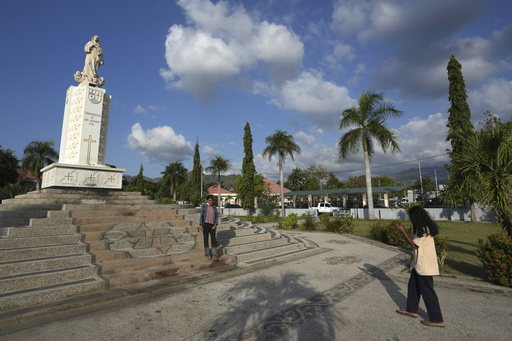In 2022, the Vatican confirmed that Bishop Carlos Ximenes Belo, an East Timorese independence hero and Nobel Peace Prize winner, had sexually abused young boys. Despite this scandal affecting the Catholic Church’s credibility in the newest Asian country, East Timorese people largely downplay, doubt, or dismiss the accusations against Belo and an American missionary who admitted to molesting young girls. The community instead focuses on their heroic roles during the country’s fight for independence from Indonesia. Pope Francis is set to visit East Timor, but it is uncertain if he will address the sex abuse cases directly during his trip.
Although there is no internal pressure in East Timor to confront these scandals, it would be significant for the victims if Pope Francis acknowledged them, according to Dutch journalist Tjiyske Lingsma, who exposed the abuse cases. The Vatican had sanctioned Belo secretly in 2020 following awareness of the case since 2019. Despite the official acknowledgment, many East Timorese individuals like university student Martinha Goveia and vegetable trader Alfredo Ximenes still doubt the allegations against Belo and hope for his public denial during the pope’s visit.
The Catholic Church in East Timor, where 98% of the population is Catholic, plays a crucial role due to its support for the resistance during Indonesia’s military occupation. The culture in Asia, which tends to hold adults and authority figures in high esteem, along with the heroic status of individuals like Belo and the missionary Richard Daschbach, contributes to their continued reverence despite the abuse allegations against them. Daschbach was defrocked by the Vatican, criminally charged, and convicted in 2021, but Prime Minister Xanana Gusmao has expressed his desire to secure Daschbach’s early release.
Belo retired in 2002 and later resided in Mozambique before moving to Portugal, raising suspicions that he, like others, was allowed to retire quietly to avoid tarnishing the church’s reputation. The Vatican indicated that decisions regarding such cases were made differently in the past. Lingsma faced skepticism and negative reactions for reporting on the abuse cases in East Timor, as some individuals find it challenging to speak out against the church due to its historical significance during the independence struggle. The cases of Belo and Daschbach are considered matters for the Vatican, and many view them as a thing of the past.
Notwithstanding, ongoing allegations against other priests persist, highlighting flaws in the reporting system. Despite the challenges in addressing clergy abuse in East Timor, some believe that acknowledging the victims and condemning the perpetrators during the papal visit could have a profound impact on the global stage. Pope Francis’ visit to East Timor presents an opportunity to address these issues openly, potentially setting a new precedent in the church’s approach to clergy abuse cases.


